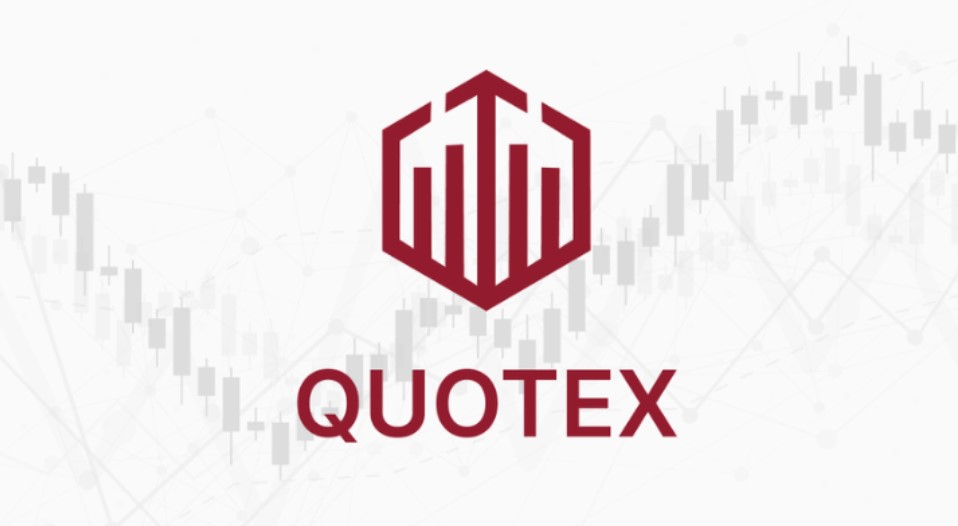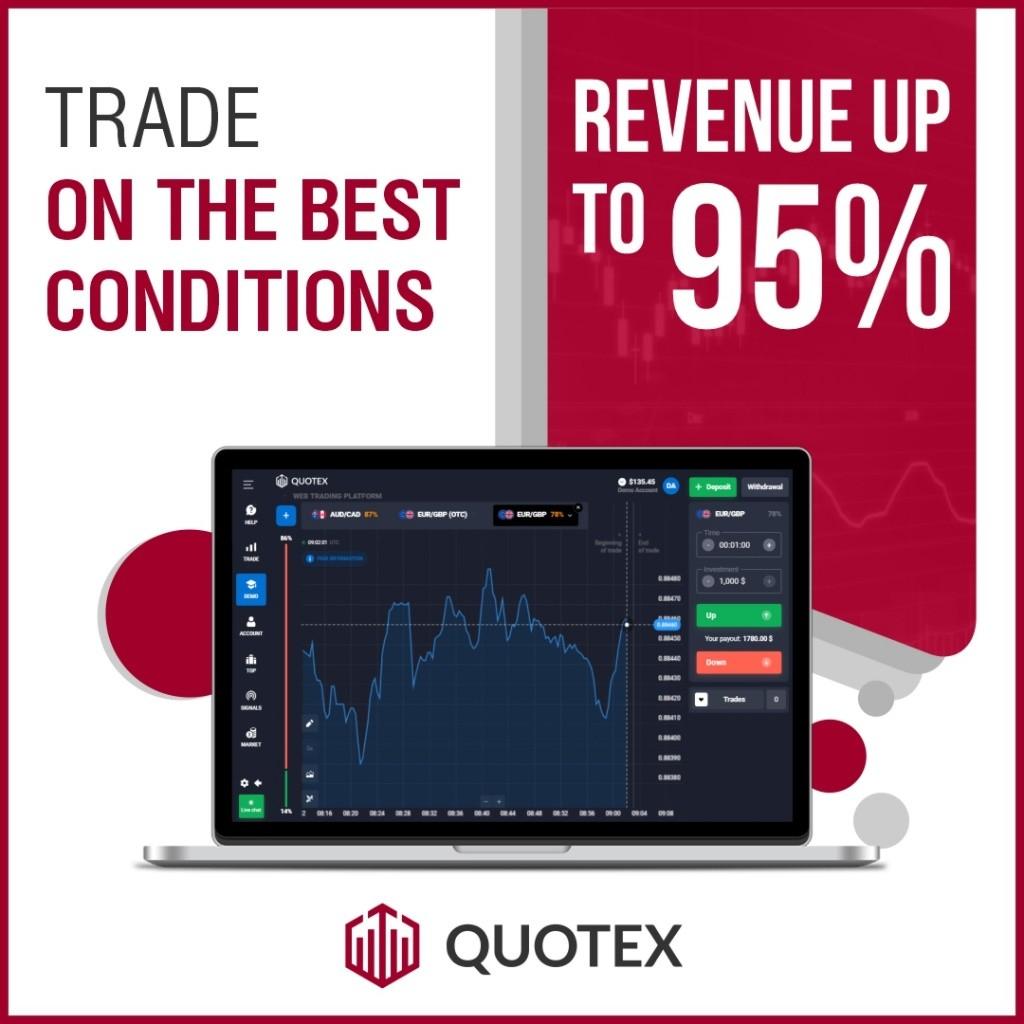
9 minute read
Quotex vs Zerodha: Which Broker Is Right for You?
from QUOTEX
In the rapidly evolving world of online trading, choosing the right broker is a critical decision for both novice and experienced traders. Two platforms that have garnered significant attention in 2025 are Quotex vs Zerodha. While both brokers cater to different trading needs and audiences, they offer unique features, fee structures, and platforms that make them stand out in their respective markets. This comprehensive comparison will explore the key differences and similarities between Quotex vs Zerodha, helping you decide which broker aligns best with your trading goals.

💥 Trade with QUOTEX now: Open An Account or Visit Brokers
Overview of Quotex vs Zerodha
Quotex: A Binary Options Powerhouse
Quotex, launched in 2020, is a digital trading platform specializing in binary options. It has gained popularity for its user-friendly interface, low entry barriers, and diverse asset offerings. Registered under ON SPOT LLC GROUP in St. Kitts and Nevis, Quotex operates in a jurisdiction with minimal regulatory oversight, which allows for flexibility but comes with risks. It is designed for traders interested in short-term, high-risk/high-reward trading, particularly in binary options, forex, cryptocurrencies, and commodities.
Zerodha: India’s Leading Discount Broker
Zerodha, founded in 2010 by brothers Nithin and Nikhil Kamath, is India’s largest retail stockbroker, boasting over 7.5 million active clients as of 2024. Based in Bengaluru, Zerodha is a member of the National Stock Exchange (NSE), Bombay Stock Exchange (BSE), and Multi Commodity Exchange (MCX). It offers trading in equities, derivatives, currencies, commodities, mutual funds, and bonds, with a focus on low-cost, technology-driven services. Zerodha is regulated by the Securities and Exchange Board of India (SEBI), making it a trusted choice for Indian residents.
1. Fees and Costs
Brokerage fees significantly impact trading profitability, especially for high-frequency traders. Both Quotex vs Zerodha are known for their competitive pricing, but their structures differ due to their target markets.
Quotex:Quotex is highly cost-effective for binary options traders. It requires a minimum deposit of just $10, making it accessible for beginners with limited capital. There are no fees for deposits or withdrawals, which is a major advantage compared to competitors like GC Option, which may charge up to 4.5% for withdrawals. Quotex also offers a 30% welcome bonus on deposits of $100 or more, though these bonuses often come with trading requirements that could encourage over-trading. Withdrawals start at $10 for most methods, but cryptocurrency withdrawals have a higher minimum of $50. Key Advantage: Low entry barriers and no transaction fees make Quotex ideal for small-account traders.
Zerodha:Zerodha pioneered the discount brokerage model in India, offering zero brokerage for equity delivery trades and a flat ₹20 per executed order (or 0.03%, whichever is lower) for intraday, futures, and options trades. There are no account opening fees, but the annual maintenance charge (AMC) for a Demat account is ₹300 + 18% tax. Additional charges include ₹50 per order for call-and-trade services and ₹13.5 per script for delivery transactions when selling from a Demat account. Zerodha’s transparent fee structure and low costs make it a favorite among cost-conscious traders. Key Advantage: Free equity delivery and low, flat fees for other trades save significant costs for high-volume traders.
Verdict: Quotex is better for traders with small budgets due to its low minimum deposit and no transaction fees. Zerodha, however, offers better value for Indian traders focused on equities and derivatives, especially with its free delivery trades.
2. Trading Platforms
A broker’s trading platform can make or break the trading experience. Both Quotex vs Zerodha prioritize user-friendly, technology-driven platforms, but their functionalities cater to different trading styles.
Quotex:Quotex offers a web-based platform and a mobile app compatible with iOS and Android devices. The platform is intuitive, with a clean design, simple order execution, and built-in tools like technical indicators and trading signals. Traders can access a free demo account with $10,000 in virtual funds, which has no time restrictions and allows unlimited fund replenishment. This is particularly beneficial for beginners practicing binary options strategies. However, the platform lacks advanced charting tools and third-party integrations compared to traditional brokers. Key Advantage: The demo account and mobile accessibility make Quotex beginner-friendly and flexible for on-the-go trading.
Zerodha:Zerodha’s flagship platform, Kite, is available as a web-based interface and a mobile app for Android and iOS. Kite is renowned for its simplicity, speed, and powerful features, including advanced charting, technical indicators, and support for algo trading via third-party integrations like Streak and Sensibull. Zerodha also offers Coin for mutual fund investments, Varsity for educational resources, and Sentinel for market alerts. While Zerodha’s platforms are highly rated, occasional technical glitches have been reported, particularly during high-volatility market sessions. Key Advantage: Zerodha’s robust ecosystem of tools and integrations caters to both beginners and advanced traders.
Verdict: Quotex’s platform is simpler and better suited for binary options trading, while Zerodha’s Kite offers more advanced features for equity and derivatives traders. If you prioritize charting and algo trading, Zerodha is the better choice.
3. Asset Classes
The range of tradable assets is a crucial factor when selecting a broker, as it determines the diversity of your portfolio.
Quotex:Quotex specializes in binary options, offering a wide range of assets, including forex pairs, cryptocurrencies, commodities, and indices. The platform is designed for short-term trades with fixed payouts, appealing to traders seeking quick returns. However, it does not support traditional equity trading or mutual funds, limiting its appeal for long-term investors. Key Advantage: Diverse asset classes for binary options traders.
Zerodha:Zerodha offers a broad spectrum of investment options, including equities, derivatives, currencies, commodities, IPOs, mutual funds, bonds, and government securities. It supports trading on NSE, BSE, MCX, and NCDEX, making it a versatile choice for Indian investors. Zerodha’s Coin platform allows direct mutual fund investments with no commission, and partnerships with platforms like Smallcase and GoldenPi provide access to thematic investments and bonds. Key Advantage: Extensive investment options for both short-term trading and long-term wealth creation.
Verdict: Quotex is ideal for traders focused on binary options and speculative trading, while Zerodha is better for those seeking a diversified portfolio across multiple asset classes.

💥 Trade with QUOTEX now: Open An Account or Visit Brokers
4. Regulation and Safety
Regulation is a critical factor in assessing a broker’s reliability and the safety of your funds.
Quotex:Quotex operates as an offshore broker under minimal regulatory oversight in St. Kitts and Nevis. It lacks licenses from top-tier regulators like the FCA, SEC, or SEBI, and several authorities (e.g., CONSOB in Italy, CMVM in Portugal) have issued warnings against it for unauthorized services in their jurisdictions. While Quotex employs SSL encryption and segregates client funds, the lack of stringent regulation increases risk, particularly for traders in regulated markets. Key Risk: Limited investor protection and dispute resolution mechanisms.
Zerodha:Zerodha is regulated by SEBI and is a member of NSE, BSE, MCX, and CDSL. It adheres to strict compliance standards, ensuring transparency and safety for Indian traders. However, Zerodha does not offer negative balance protection, meaning traders could face losses beyond their account balance in extreme market conditions. Its reputation as India’s leading broker, backed by a strong track record and transparent management, enhances its trustworthiness. Key Advantage: Strong regulatory framework and a proven track record.
Verdict: Zerodha is the safer choice for traders prioritizing regulation and fund security. Quotex is riskier due to its offshore status, making it less suitable for those in heavily regulated markets.
5. Customer Support
Responsive customer support is essential for resolving trading issues quickly.
Quotex:Quotex provides customer support via email and social media, with some regions offering live chat. However, response times can be slow compared to competitors like Videforex, which offers 24/7 live chat and phone support. The lack of robust support channels is a drawback, especially for traders needing immediate assistance during market hours. Key Drawback: Limited support options may frustrate traders with urgent queries.
Zerodha:Zerodha is known for its excellent customer support, offering phone, email, and ticketing systems. Its Trading Q&A portal and Varsity educational resources provide extensive self-help options. Zerodha’s support is highly responsive, making it a standout among discount brokers in India. Key Advantage: Superior customer service and educational resources.
Verdict: Zerodha offers better customer support and resources, making it more reliable for traders needing assistance or education.
Who Should Choose Quotex?
Quotex is best suited for:
Beginners in binary options trading due to its low $10 minimum deposit and free demo account.
Speculative traders seeking high-risk, high-reward opportunities in forex, cryptocurrencies, and commodities.
Traders in regions with relaxed regulations who are comfortable with offshore brokers.
Mobile traders who value a simple, intuitive app for quick trades.
Potential Drawbacks:
Lack of regulation increases risk.
Limited asset classes beyond binary options.
Slow customer support response times.
Who Should Choose Zerodha?
Zerodha is ideal for:
Indian residents looking for a regulated, trustworthy broker.
Long-term investors interested in equities, mutual funds, and bonds.
Active traders seeking low-cost brokerage for intraday and derivatives trading.
Tech-savvy traders who value advanced platforms and tools like Kite and Sensibull.
Potential Drawbacks:
Limited to Indian markets, not suitable for international traders.
Annual Demat account maintenance fees.
Occasional platform glitches during high-volatility periods.
Final Verdict: Which Broker Is Right for You?
The choice between Quotex vs Zerodha depends on your trading goals, risk tolerance, and location:
Choose Quotex if you’re a beginner or speculative trader interested in binary options, with a small budget and a preference for a simple platform. It’s a good fit for those comfortable with the risks of an offshore broker and seeking quick, high-risk trades.
Choose Zerodha if you’re an Indian resident looking for a regulated, cost-effective broker with a wide range of investment options. Its robust platforms, zero delivery fees, and excellent support make it ideal for both beginners and seasoned investors.
Ultimately, assess your trading style, budget, and need for regulation before deciding. For binary options and flexibility, Quotex is a strong contender. For diversified, long-term investing in India, Zerodha is unmatched.
Tips for Choosing the Right Broker
Define Your Goals: Are you trading for quick profits (Quotex) or building long-term wealth (Zerodha)?
Check Regulation: Prioritize brokers regulated by reputable authorities for fund safety.
Test the Platform: Use Quotex’s demo account or Zerodha’s Kite demo to evaluate usability.
Compare Costs: Factor in brokerage fees, transaction charges, and hidden costs.
Research Support: Ensure the broker offers reliable customer service for your needs.
Conclusion
Both Quotex vs Zerodha offer compelling features tailored to different types of traders. Quotex excels in accessibility and simplicity for binary options trading, while Zerodha dominates as a trusted, versatile broker for Indian markets. By weighing their fees, platforms, asset offerings, and regulatory status, you can make an informed decision that aligns with your financial objectives. Whether you choose Quotex’s high-risk, high-reward model or Zerodha’s low-cost, diversified approach, both brokers provide valuable tools to succeed in 2025’s dynamic trading landscape.
💥 Trade with QUOTEX now: Open An Account or Visit Brokers
Read more:






